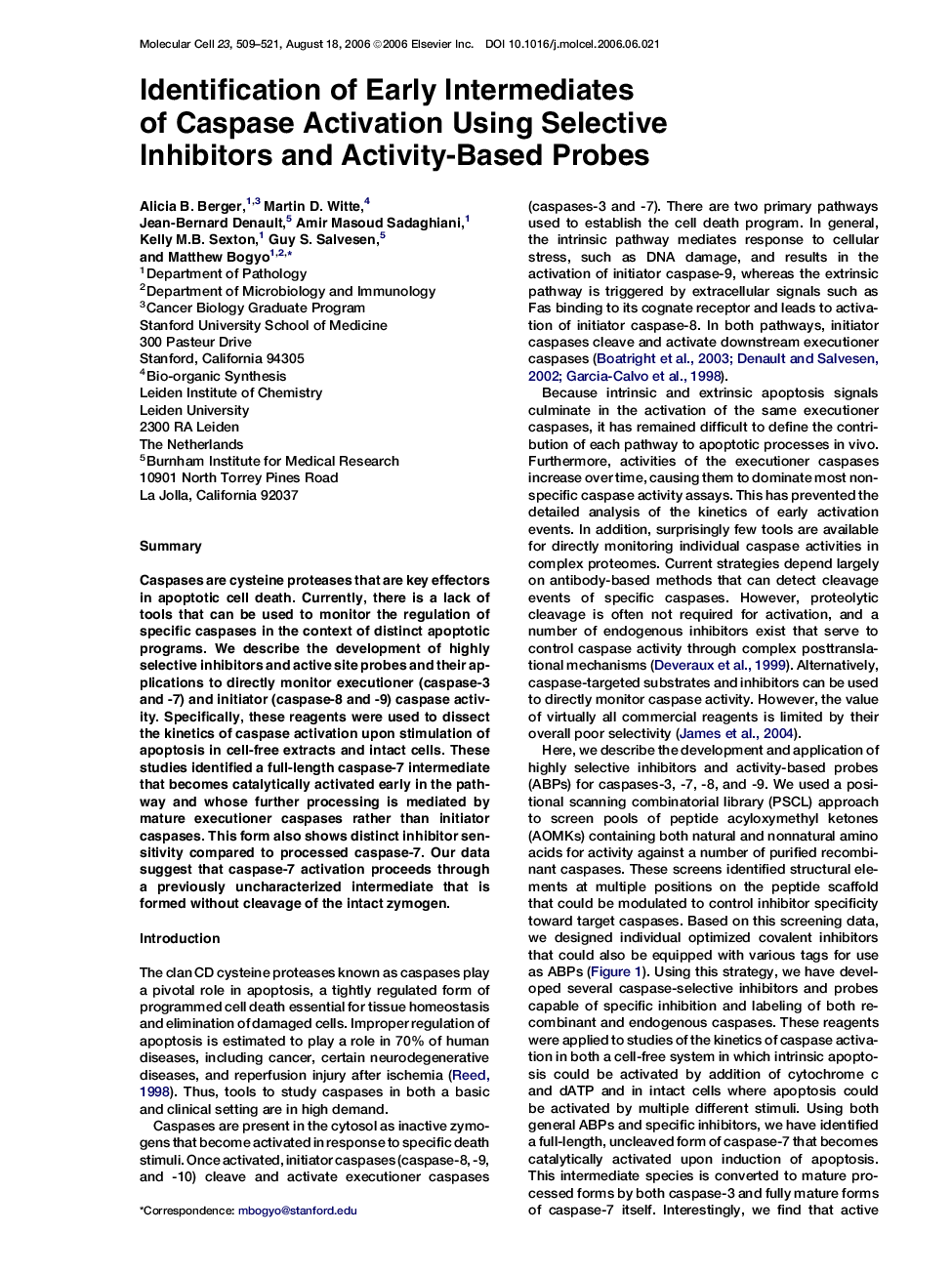| Article ID | Journal | Published Year | Pages | File Type |
|---|---|---|---|---|
| 1998045 | Molecular Cell | 2006 | 13 Pages |
SummaryCaspases are cysteine proteases that are key effectors in apoptotic cell death. Currently, there is a lack of tools that can be used to monitor the regulation of specific caspases in the context of distinct apoptotic programs. We describe the development of highly selective inhibitors and active site probes and their applications to directly monitor executioner (caspase-3 and -7) and initiator (caspase-8 and -9) caspase activity. Specifically, these reagents were used to dissect the kinetics of caspase activation upon stimulation of apoptosis in cell-free extracts and intact cells. These studies identified a full-length caspase-7 intermediate that becomes catalytically activated early in the pathway and whose further processing is mediated by mature executioner caspases rather than initiator caspases. This form also shows distinct inhibitor sensitivity compared to processed caspase-7. Our data suggest that caspase-7 activation proceeds through a previously uncharacterized intermediate that is formed without cleavage of the intact zymogen.
